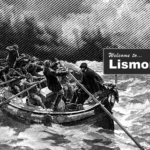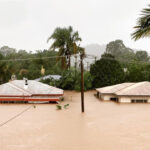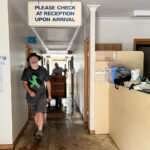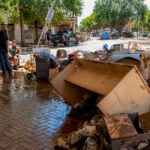A multi-million dollar recovery package offers new hope and comes almost a year after the worst flood the city had ever seen.
The Commonwealth and NSW state governments have announced a $5 million flood recovery package for Northern Rivers primary health professionals whose practices were all but wiped out by last year’s flooding.
Grants of up to $150,000 will be available, Health Minister Mark Butler said, although larger grants could be made for providers in exceptional circumstances.
Funding for the grants will be provided via the North Coast PHN, Healthy North Coast. Further information on how to apply for a grant can be found on the Healthy North Coast website.
Flood recovery infrastructure grants are now available to general practices, allied health (including mental health), dental practices, pharmacies, private specialists, pathology providers, drug and alcohol treatment services and Aboriginal Community Controlled Health Services based in Lismore.
The grants offer financial assistance, either as reimbursement for already incurred expenses, or for upcoming expenses relating to repairs for flood-damaged buildings and equipment, or relocation to alternative premises within the Lismore LGA.
The Commonwealth and NSW state governments will each chip in $2.5 million in targeted support for primary healthcare services.
Mr Butler said that out of 67 local primary care providers surveyed following the disaster, 58 practices, or close to nine out of 10, reported some flood damage.
The announcement follows healthcare professionals presenting a united front to push for government funds.
“The AMA has kindly taken up our cause and have joined forces with many of the medical colleges as well,” Keen Street GP Dr Nina Robertson told The Medical Republic in September.
“The RACGP and ACRRM [are working with us], as well as some of the specialty colleges – and indeed, the Pharmacy Guild is also on board.”
Through the NSW Rural Doctors Network, the group put together a grant proposal recommending that the state government make a healthcare-specific business grant open to all non-government primary health services.
The proposed grant would be sufficient to cover the losses caused by the floods, as well as compensate practitioners for lost income.
RACGP rural chair Dr Michael Clements welcomed the funding announcement.
“Resilient communities recovering from a natural disaster certainly deserve a helping hand,” he said.
“But looking ahead, we must keep in mind that natural disasters, including floods and bushfires, will become not only more frequent but also more intense as climate change intensifies.
“Governments must be prepared to get behind affected communities and ensure healthcare workers have the resources and support they need to get on with the job.”
AMA NSW president Dr Michael Bonning also welcomed the announcement.
Dr Bonning was among several healthcare leaders who have also called for health businesses in regional and rural communities to be designated as essential services in the event of a disaster.
“We’re continuing to push for that,” he told TMR.
“No one’s committed to anything yet but we’re seeing a more positive understanding from government which recognises that all of these health services, especially in regional areas, are much more interlinked and core to service provision.”
Dr Bonning added that NSW Health Minister Brad Hazzard has said he plans to raise the issue at the regular meeting of state health ministers next week.
State Labor member for Lismore, Janelle Saffin, said while the initial proposal had been for a $10m recovery package, she was still pleased with the result – including the bipartisan display of political will.
“I actually said to Mr Butler, will you please reach out to your state counterpart and have a conversation because this is a need, not a want,” Ms Saffin said.
“It’s a need for my community, and can you two grown-ups talk?”
The funding cannot come soon enough for the Northern Rivers region’s healthcare professionals.
“When a 60-year-old who previously just had an irregular heartbeat doesn’t get his blood pressure tablets from his GP and ends up with a massive stroke at Lismore Base Hospital, that’s 20 years of good life lost, you’re in a nursing home,” Ballina-based Dr Sue Velovski, a rural specialist general surgeon, told TMR in the wake of the floods.
“They’re the sad things that we’re experiencing as clinicians.”







